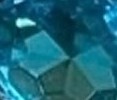If a machine is never 100% efficient transforming energy into work because part of the energy is converted into heat, does it mean an electric heater is 100% efficient? @showerthoughts@lemmy.world
You know how you turn on an electric heater and the filament begins to glow? That is energy being converted to light, so not 100% efficient.
Doesn’t the light turn into heat anyway as soon as it’s absorbed?
I mean if you want to go that route, we could just say that every speaker, light source, motor, etc is 100% efficient at generating heat because all of its energy output will eventually become heat.
That is also completely true, but meaningless because heat generation is not the purpose of these devices. However, if you use them in a building heated by a thermostat-controlled electric heater, you’re effectivhly running them for free.
I‘m was using two old servers with folding@home running as space heaters in the winter. I got them for dirt cheap and thought if I convert electricity into heat, I might as well do something good with it. Also nice opportunity to run a minecraft server for the kids during that time.
I‘m was using two old servers with folding@home running as space heaters in the winter. I got them for dirt cheap and thought if I convert electricity into heat, I might as well do something good with it. Also nice opportunity to run a minecraft server for the kids during that time.
You double-posted this comment, FYI
One for each server.
It’s still efficient because both those comments will end up as heat anyway.
Energy can neither be created nor destroyed so in the grand scheme of things, everything is 100% energy efficient one way or another.
I suggest we submit proposals to define “100%” and “efficient” before we design the experiment
The visible part of the spectrum is likely going to be absorbed somewhere far away from the place you’re trying to heat up. Also, I’m not educated enough to tell if there will be further losses of energy
If it’s in a room the visible radiation will still just heat up the room. If you’re using it outdoors and point it away then yeah you’ll have some waste.
Not sure if visible radiation that leaves through a transparent window will still heat up only inside the room, that what I meant. Probably should have phrased it better
that’s only true if you shine it out a very large the window
normally windows cover a quite small fraction of a rooms surface area
but sure, if a few fractions of a percent leave through a window, i guess its technically not a 100% effective space heater, if we define the work as heating only the relevant room.
and that light hits stuff and gets converted to heat.
That heat also powers certain chemical reactions happening on the surface of the hot wire. It’s not a lot of energy, but it’s still something. Light and sound tend to be converted back to heat at some point, but chemical transformations can be more stable, which would result in a tiny loss of efficiency.
Black-body radiation is an interesting argument against 100% efficiency, but couldn’t you just extrapolate and argue that the emission will be converted back to heat once it stops reflecting and becomes absorbed?
That’s like arguing that trickle down economics is efficient because the money eventually gets into the hands of the poor.
That’s like arguing that 99% of the light off a heating element is a laser beam directed straight into deep space.
It depends on the framing of the question a bit. If we are defining 100% efficiency as 100% of electrical energy being converted into kinetic energy (heat) by the device, then that is a no. Some percentage is emitted as EM radiation instead of heat. If they were so then a light bulb or a bomb is a 100% effective heater as well.
It depends on what you consider the room: Both a light bulb and a bomb would deliver all their energy around a fully enclosed room. Incandescent bulbs are indeed effective heaters, LEDs just deliver much less energy. And a bomb, by design, is hard to contain in a room.
Not all electric heaters use that kind of filament
This is true. I assume the ceramic heaters also emit light, just not in the visible spectrum.
Not quite. Some is lost in magnetic flux and mechanical deformation. But that is a VERY small about.
Do those not end up as heat later down the line as well?
Yes, but magnetic flux causes radio waves and there isn’t a guarantee these will turn into heat in the space you are heating.
That’s an interesting point about radio emissions leaving the heated space.
Yes, but, it is also possible to achieve greater than 100% efficiency in using electrical energy for heat. You can use electricity to move heat from where you don’t need it to where you want it. The amount of heat energy you move can be greater than the amount of electrical energy put into the system, so it’s greater than 100% electrically efficient. It’s well below 100% thermal efficiency, of course.
(he’s talking about heat pumps)
Same link with site tracking removed: https://youtu.be/7J52mDjZzto
I am not a bot, and this action was performed manually.
Here is an alternative Piped link(s):
https://piped.video/7J52mDjZzto
Piped is a privacy-respecting open-source alternative frontend to YouTube.
I’m open-source; check me out at GitHub.
KNEW it was gonna be the technology connections video.
was literally just talking about, and recommended this video, IRL like 10 minutes ago.
THIS IS THE COMMENT THREAD YOU WANT TO LOOK INTO.
who, me ?
Here is an alternative Piped link(s):
https://piped.video/7J52mDjZzto?si=i57lMtNvpoLUxKGK
Piped is a privacy-respecting open-source alternative frontend to YouTube.
I’m open-source; check me out at GitHub.
Technically, yes. Even the internal resistances outside of the heating elements eventually radiate into the space. Since the purpose is space heating, it’s not a waste product and they can be roughly considered 100% efficient.
The reason heat pumps are more efficient (i.e. around 300% or more) is not that they create more heat from the same amount of energy but because they concentrate and move existing heat from one source to another.
This is correct, but it’s also, it’s only 100% of the heat at that point in the circuit.
Technically, using natural gas to make electricity, then sending that electricity to an electric heater would be less efficient than burning that natural gas for heat at the source.
So it depends on where you start counting from.
True, and also the transmission losses between the power plant and your outlets are also factors. I just treated the question like a high school physics one where you’re allowed to disregard air resistance. lol
If so that means moving a block of ice has negative heat efficiency. Sounds like nitpicking to me.
deleted by creator
I’m honestly not clear if the visible portion eventually turns to heat or not (in a reasonable timeframe anyway), but the bulk of those emissions are in the infrared spectrum which you will feel as heat or will be absorbed by other objects which will radiate the heat through convection.
That’s why I said “technically” and “roughly” in regards to 100% efficiency. I’m answering a shower thought in an ELI5 kind of way, not writing a thesis.
Yes, but a heat pump for heating is somwhere from 200% to 500% efficient.
Yes, except a heat pump is capable of being more than 100% efficient because the using the power to move heat around is more efficient than converting power directly to heat
but but muh thermodynamics
I get you are joking, but incase someone doesn’t see the /s. As the top comment said it’s easier to move heat around than creating it. Regardless if it’s warmer or colder outside there’s still energy there that we can use.
It’s easier to move your clothes from the laundry basket to the wardrobe, than to go out and buy new clothes (or is it?).
Essentially all electrical devices are, in addition to whatever else they do, also basically 100% efficient space heaters. A PC running on 300 watts is doing things with that 300 watts but it all ends up as heat, the vast majority of which stays in the room. A light bulb puts out light, but little of that light leaves the house, it’s all getting reflected and absorbed until it’s mostly a heater in your house.
Consuming energy to do something the device isn’t intended to do is the definition of inefficiency. You’ve basically redefined efficiency so as to make it meaningless.
What are you confused about?
That’s why they phrased it “also basically 100% efficient space heaters.”Every electric device is a something% effective whatever work they are meant for device, but ALSO a 100% effective space heater.
That second part is meaningless to the devices normal function, but very relevant to the post question.They didn’t redefine efficiency. They changed the purpose scoping.
It would be meaningless, were it not for the context of the question it is answering. All of the electrical energy consumed is being turned in to heat in all those cases making it indeed possible to make a 100% efficient heater using electricity as was asked. The fact that that is orthogonal to the purpose of the machines is only relevant in as much as that’s why they were chosen as illustrative examples, showing that even when you’re not trying to, you end up making 100% efficient space heaters from electrical devices.
If a light bulb gets dinged for leaking light outside of the house, then a computer, a computational and informational device, should also get dinged for any light not absorbed by eyeballs and any errant processes/calculations running without discrete need
The light leaving the house decreases heating efficiency because the energy quite literally went out the window. If you run needless calculations or look away from the monitor, that energy still ends up heating your house
The visible light from a light bulb escaping the house is a very small amount of energy. If it’s an incandescent, then it likely loses a lot of infrared radiation, the primary product of an incandescent bulb, out the window as well (although this would be mitigated by IR-reflecting glass commonly found in the last 20 years). If it’s a fluorescent or LED though, there’s almost no infrared radiation by comparison and very little energy is thrown out the window. Nearly all the heat they generate is inside the base and carried away mostly by convection, partly by conduction, and a little by radiation.
So yes, we can use items as minor home heaters. I’m literally doing that right now at my new place by leaving the incandescents in place to help a 30 year old hvac system. There are pools and office sout there being heated by bitcoin mining farms. But what about in 3 months when I need to cool the house? Suddenly, the charitable heating of wasteful appliances stops making sense. I stand by what I said: if a light bulb gets dinged for losing energy out the window, a computer gets dinged for <100% efficiency on its primary purpose.
Heaters sometimes produce a little light or sound, so not 100%, but very close.
The sound will eventually dissipate in the air as heat. The light will be absorbed into surfaces, like any other radiation, as heat. Still 100%, but with a couple extra stops along the way.
All energy output will eventually become heat. Why bother measuring efficiency at all if we’re counting those aftereffects?
Only heaters are a machine where the “good” output is one you want to be heat.
For other devices the heat is the bad part.
But since your goal with a heater… is to generate heat… and all energy eventually will become heat, it is close to 100% efficient.
If you can hear the heater’s sound it makes in a room/area you don’t want to be heating though, now it’s <100% efficient as a tiny bit of energy became heat that heated the non ideal location.
Fun fact: this phenomenon is what causes the infamous “hot ear” effect that many people suffer from every day.
Yeah I mean you’d have to consider the practical factors such as how quickly or evenly they can heat up a room rather than worry so much about the raw efficiency.
There’s an interesting aspect of this that I have not seen mentioned yet. While this is true you are usually better off using your residential heater rather than an electric space heater because residential heaters are frequently over 100% efficient. That is, they deliver more heat for the energy expenditure than if you had converted the energy directly by redirecting ambient heat. Heat pumps are this same principle taken to the extreme.
But there’s a flip side to that as well - if you’ve got heat pump heating your whole home but you only really need to heat 1 room, you may be “wasting” a good chunk of that bonus efficiency.
If you dont want certain rooms heated you close the doors to those rooms. And place the heater such that the airflow goes trough the rooms you want heated.
Also the house should be heated evenly unless you have really poor isolation and that should be addressed way before the minutia of heat pumps gets discussed.
But you can heat an area with ‘better than 100% efficiency’ if you use a heat pump and move heat from one place to another. Coefficients of performance (cop) of about 2.5 I think are pretty common, meaning if you put 100 watts into moving heat, the area will get 250 watts warmer.
Total amount of heat for the entire closed system does not increase over 100% of energy used to drive the heat pump. Like you said, you just moved heat around
Only in the sense of releasing heat into the surrounding environment. But for instance, an electric boiler is not 100% efficient because not all of the heat goes to the water. The heat that doesn’t go to the intended recipient of the heat is treated as loss.
tl;dr, yes If you want to watch a 20 minute video about it instead of 1 word answers, https://youtu.be/V-jmSjy2ArM
Here is an alternative Piped link(s):
https://piped.video/V-jmSjy2ArM
Piped is a privacy-respecting open-source alternative frontend to YouTube.
I’m open-source; check me out at GitHub.
Yes it does. There’s no such thing as an inefficient electric heater. I’m the US they sell 2 kinds. 750w and 1500w. The differences between them are all a matter of form factor. Maybe a nice fan to circulate might be what you like though.
But a YouTube ad told me that “a college kid blessed with a gift for engineering invented a heater that uses 90% less energy” and that I should order one now!
God, I hate the existence of those ads. I hope people are smart enough to not get scammed by them, but their continued prevalence suggests otherwise.
I so want this to be true, but dont they produce radio waves?
Yes. The end form of all energy is heat.
The problem is that heat is a high-entropy source of energy. As a result, the losses come when you try to convert all that delicious heat back into electricity (like with a steam turbine). The “efficiencies” only go one way (and I put efficiencies in quotes because, as you pointed out, getting energy into the form of heat is inevitable, whether that’s the form you wanted or not)





















